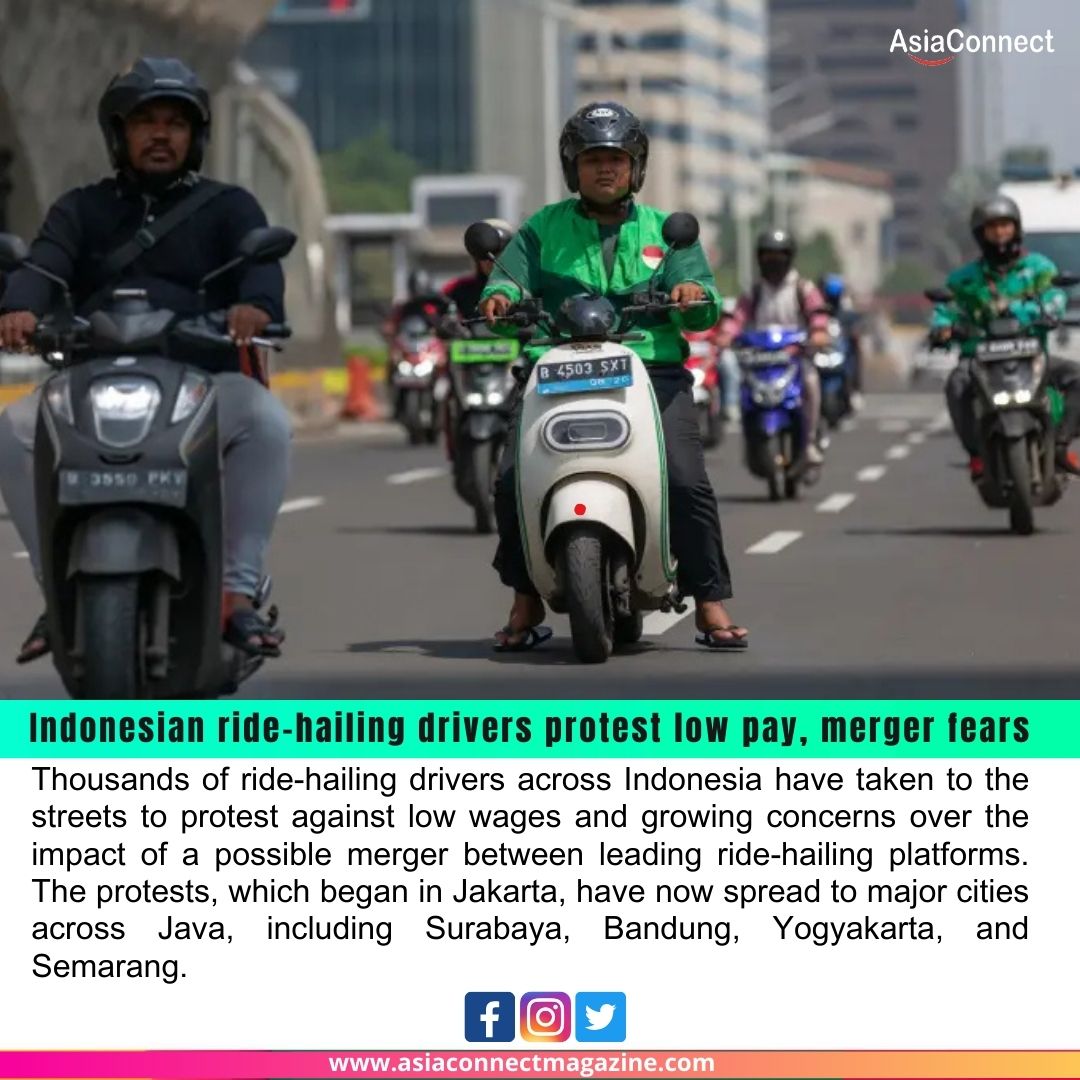Thousands of ride-hailing drivers across Indonesia have taken to the streets to protest against low wages and growing concerns over the impact of a possible merger between leading ride-hailing platforms. The protests, which began in Jakarta, have now spread to major cities across Java, including Surabaya, Bandung, Yogyakarta, and Semarang.
Growing Unrest Among Ride-Hailing Drivers
The protests reflect rising tensions in Indonesia’s growing gig economy. Drivers affiliated with popular platforms like Gojek and Grab say they are struggling with unfair payment structures, declining bonuses, and rising operational costs, especially fuel prices. Many have voiced concerns that their income has been steadily decreasing over the past few months, making it difficult to cover basic living expenses.
What began as small gatherings has now escalated into coordinated protests involving ride-hailing driver communities in multiple urban centers across Java. Demonstrators are calling for transparent fare policies, fairer profit-sharing, and a greater say in platform decisions that directly affect their livelihoods.
Merger Fears Fueling the Fire
Adding to the drivers’ frustration is the widespread speculation surrounding a potential merger between Gojek and Grab, two of Southeast Asia’s biggest ride-hailing and digital services companies. While neither company has confirmed such plans, drivers fear that a consolidation would reduce competition and give the merged entity more control over fare prices and driver incentives.
Protest leaders argue that a merger could lead to monopoly-like behavior, with fewer choices for both consumers and workers. They warn that a lack of regulation could allow the new entity to further suppress driver earnings without recourse.
Nationwide Impact on Transportation and Economy
As the protests grow in scale, they are beginning to affect urban transportation networks, particularly in Java’s busiest cities. In Bandung and Yogyakarta, commuters faced delays and service disruptions due to driver boycotts and road blockades.
Experts warn that prolonged disruptions in ride-hailing services could have a ripple effect on daily commerce, especially in cities where public transport is limited and ride-hailing apps are a primary mode of transport for millions.
Government and Platform Response
So far, Indonesian government officials have urged dialogue between ride-hailing platforms and driver communities to reach an amicable solution. The Ministry of Transportation has called for clear regulatory frameworks to ensure fair treatment of gig workers and transparency in payment models.
In response, some ride-hailing companies have issued statements promising to review driver concerns, improve communication channels, and evaluate current fare structures. However, protesters say such promises are not enough and demand concrete policy changes backed by government oversight.
The Road Ahead
The ongoing protests underscore the growing vulnerabilities of gig economy workers in Indonesia. As digital platforms continue to expand, there is increasing pressure on governments and companies to balance innovation with workers’ rights and welfare.
With protests showing no signs of slowing down, all eyes are on how the government and ride-hailing giants respond in the coming weeks.
Tags: Indonesia Ride-Hailing Protest, Gojek Grab Merger, Ride-Hailing Drivers Indonesia, Java Cities Protest, Low Pay Gig Economy, Indonesian Gig Workers, Ride-Hailing Strike, Surabaya Protest, Yogyakarta Drivers Protest, Bandung Transportation Disruption, Digital Labor Rights





